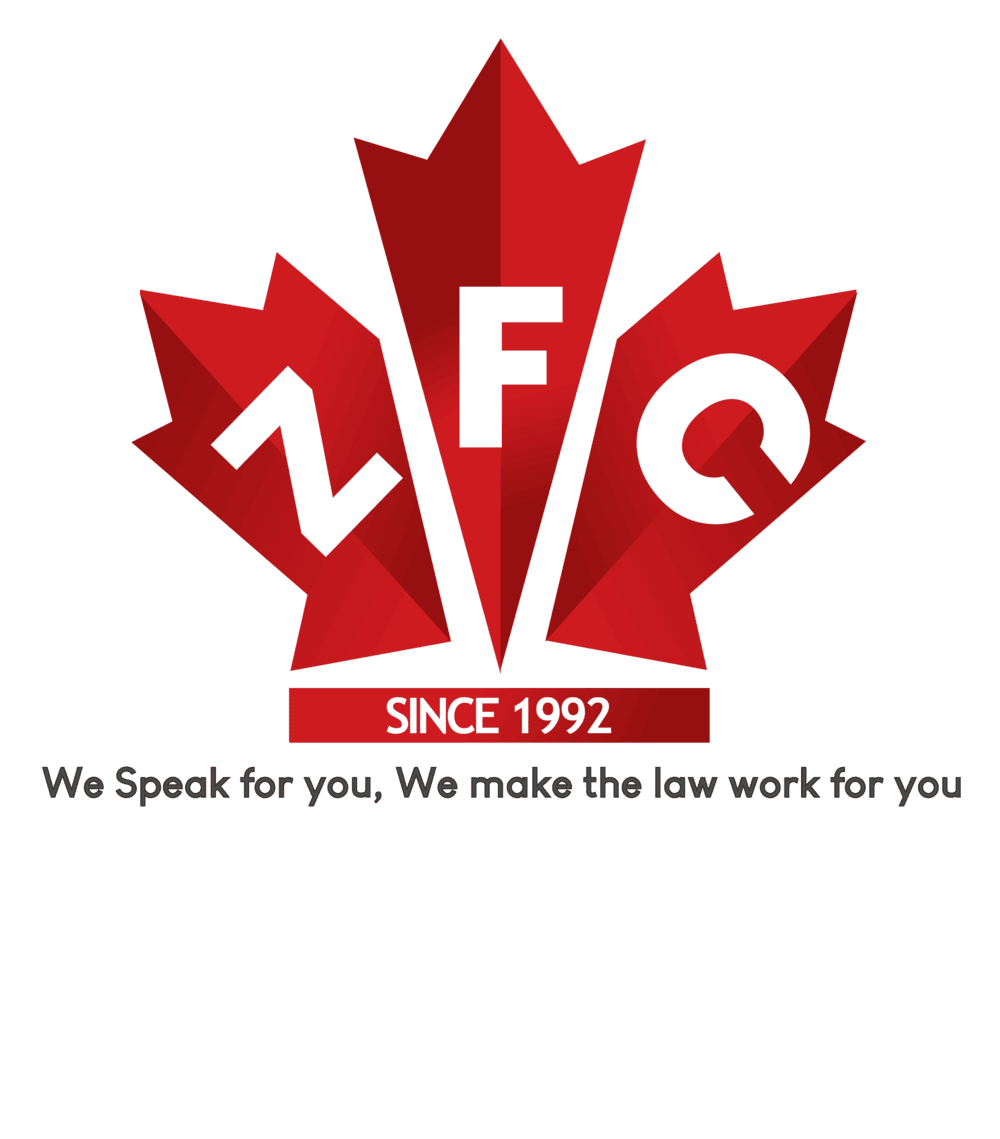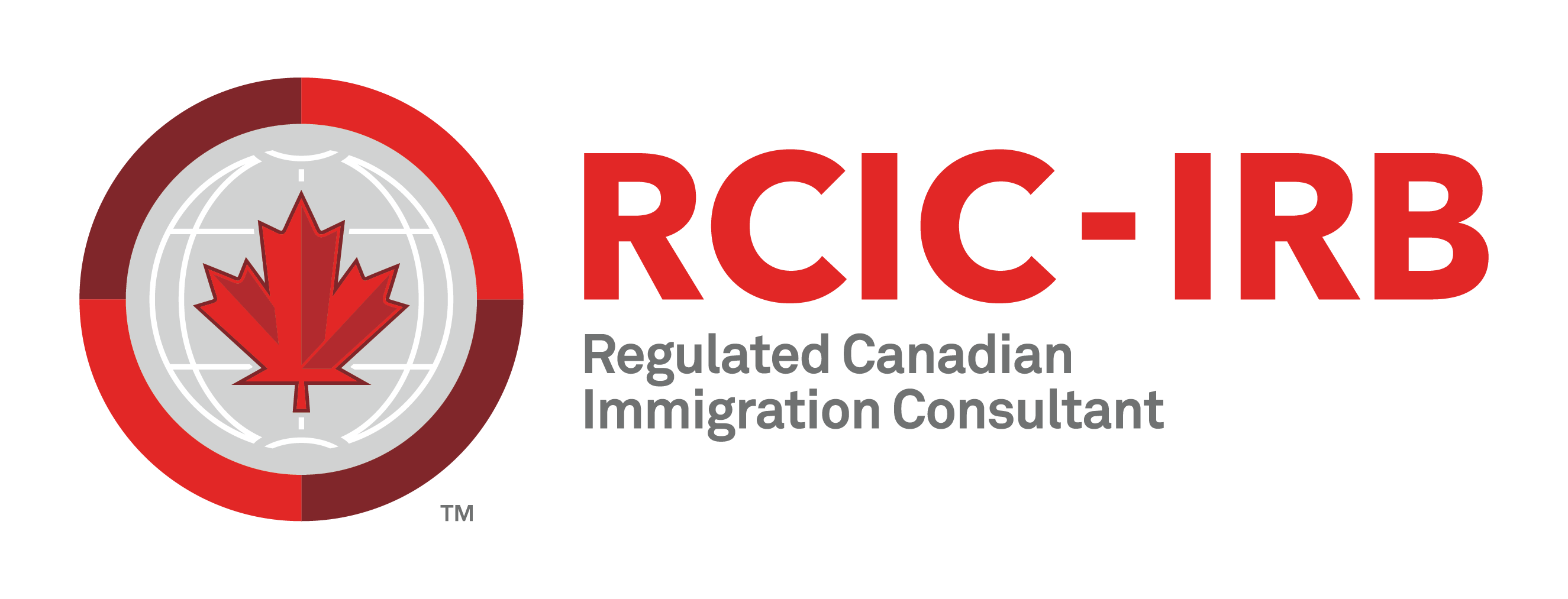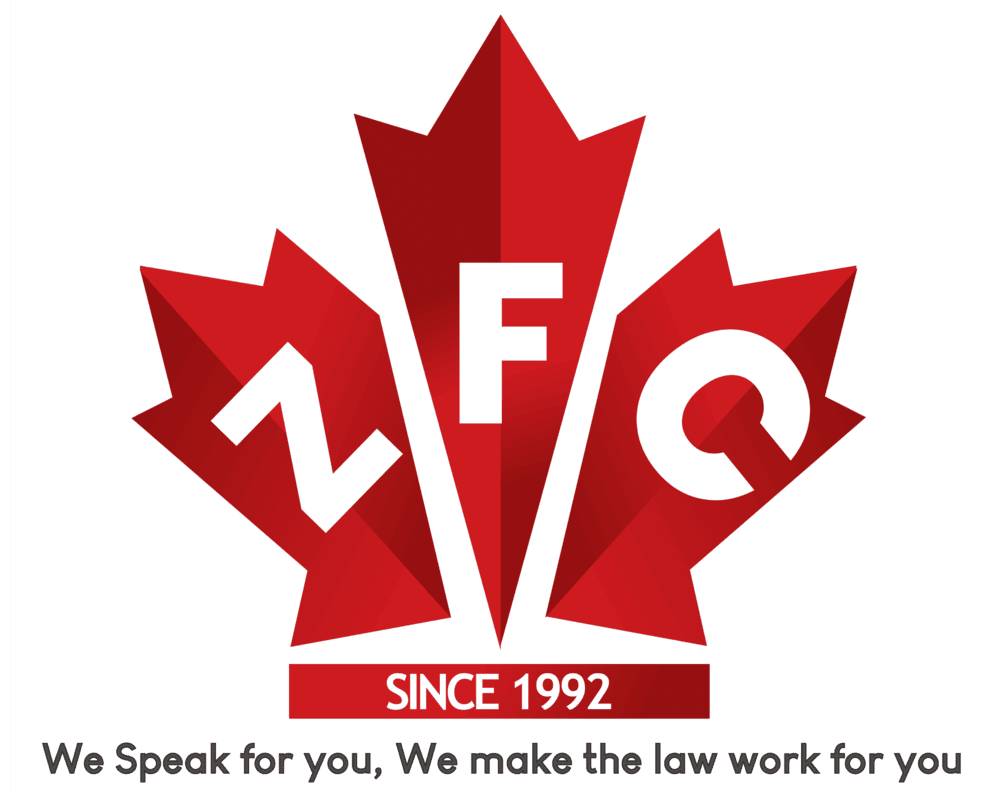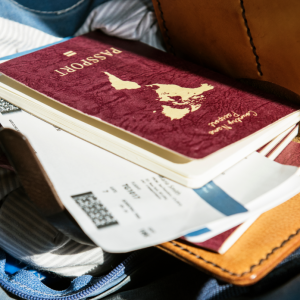There are options available to you if Immigration, Refugees and Citizenship Canada (IRCC) has refused your immigration application.
Understanding why your application may have been refused can help you in deciding how to approach a refusal.
Consult with an experienced immigration representative about your application refusal
The actions you should consider taking will vary depending on whether you believe that the refusal of your application was warranted, or whether you believe that your application was refused in error.
This article will cover
- Getting a Global Case Management System (GCMS) note to learn more about why your application was refused;
- Submitting a reconsideration request to have the decision on your application reviewed;
- Filing a Notice of Appeal if you are in an eligible circumstance;
- Challenging your application’s refusal by applying for leave and judicial review;
- Submitting a new application with information and documentation addressing the reason(s) for refusal; and
- Consulting an immigration lawyer.
There are a variety of common reasons your visitor visa, temporary residence, or permanent residence application may be refused by the immigration department.
If IRCC refuses your immigration application, you can expect to receive a physical letter or message through your IRCC account online informing you of their decision.
In most cases, however, a notice of decision will merely inform you that your application has been rejected but will offer little to no information as to why.
The first thing you should do if you find yourself in this scenario is seek out additional information about the reason your application was refused.
Then, you can move forward with the approach you find to be most appropriate for handling the refusal of your application.
Obtain a Global Case Management System (GCMS) note
To get more details regarding your application refusal, you may be able to apply for a GCMS note. The Global Case Management System is an internal system used by IRCC and the Canada Border Services Agency (CBSA) to manage and evaluate applications.
GCMS notes are information files about you and your application, containing
- Application details such as application type, date it was received and opened, and processing status;
- Any notes the immigration officer made while reviewing your file;
- Correspondence to and from IRCC;
- Information submitted by a third-party representative;
- Relevant documentation; and
- Explanations about the specific reason(s) your application was refused.
To receive a GCMS note, you need to submit an Access to Information and Privacy (ATIP) request; this requires paying a $5 processing fee.
Only Canadian citizens, permanent residents, or individuals currently residing in Canada can submit an ATIP.
Those outside of Canada will have to do so via a representative who is either a Canadian citizen, permanent resident, or corporation in Canada—and the representative will have to complete a Consent for an Access to Information and Personal Information Request (IMM 5744) form.
IRCC is required to respond within 30 days unless there are circumstances that warrant an extension.
It may take several weeks or even months before you get your GCMS note.
To request a GCMS note, your application has to have passed the R-10 completeness check, which is the initial stage of the application review process determining all required documentation is present.
Submit a reconsideration request
Immigration applications are reviewed, assessed, and finalized by IRCC officers that have undergone comprehensive training and are equipped to handle case-by-case intricacies. That being said, immigration officers can make mistakes.
Consult with an experienced immigration representative about your application refusal
You can submit a reconsideration request (RR) to IRCC to have the decision made on your application reviewed if you strongly believe the immigration officer handling your case has made an error, or if you suspect there’s been a misunderstanding that led to the initial rejection.
You may want to submit a RR if you’re certain you
- Meet eligibility requirements;
- Have filled out and provided all necessary forms;
- Have submitted a complete application devoid of errors;
- Have provided appropriate primary and supporting documentation;
- Have shown adequate proof of financial stability;
- Have completed biometrics and provided a police certificate (if applicable);
- Have provided convincing evidence of intent to leave Canada at the end of your stay (if applicable);
- Have not misrepresented yourself;
- Are admissible to Canada; and
- Have met or fulfilled any other necessary requirement(s) or expectation(s).
When submitting a RR, you’ll want to compile a package that includes a GCSM note, the application and any documents originally submitted, the refusal letter, and—most importantly—the RR letter.
The RR letter you draft should
- Clearly outline and address the error(s) and/or misunderstanding(s) you believe led to your application being refused;
- Provide compelling counterarguments where required;
- Provide clarifications that may alter the final decision on your case (for example, additional information about your health condition or details about family ties);
- Include new and valid documentation that may sway the officer (if necessary); and
- Be persuasive, professional, and respectful.
You may also want to show how your case aligns with established immigration policies or relevant case laws. Referencing specific laws can bolster your request for reconsideration and improve the chances of a favourable outcome.
Submitting a RR can be done online through IRCC’s web form or by email (if one was provided on your decision letter).
There is no fee or hard deadline associated with RRs, but acting in a timely manner is in your best interest—ideally within 30 days of having received your refusal letter.
File a Notice of Appeal
You can file a Notice of Appeal to the Immigration Appeal Division (IAD) of the Immigration and Refugee Board of Canada to have an application or situation reviewed in three specific circumstances:
- You want to appeal a family member’s sponsorship application refusal;
- You want to appeal a removal order; or
- You want to appeal the notion that you have not met your permanent residency obligations.
Any other situations will not be considered, including permanent residence or temporary residence decisions. Those with refusals not falling under one of the aforementioned circumstances may instead apply for a judicial review (more on that below), submit a reconsideration request, or reapply.
Consult with an experienced immigration representative about your application refusal
You should take this route only if you believe there was
- An error of fact or law;
- A principle of natural justice was not observed; or
- There are humanitarian and compassionate grounds to justify granting an exemption or PR status.
There are strict deadlines for filing a Notice of Appeal, which are outlined in the table below.
| Reason for appeal | Who can appeal? | Deadline to file an appeal | Necessary documentation |
|---|---|---|---|
| Sponsorship refusal | Canadian permanent residents and Canadian citizens who made an application to sponsor a family member. | 30 days from the date the refusal letter was received. | -A completed Notice of Appeal form.
-A copy of the refusal letter sent to your family member. |
| Removal order | Canadian permanent residents, foreign nationals with a PR visa, and convention refugees or protected persons. | 30 days from the date the removal order was received. | -A completed Notice of Appeal form.
-A copy of the removal order. |
| Residency obligations | Permanent residents that applied to a Canadian visa office for a travel document while they were overseas. | 60 days from the day the refusal letter was received. | -A completed Notice of Appeal form for each person in your family affected by the decision.
-A copy of the decision letter received from an overseas visa office. |
Notably, you cannot appeal sponsorship refusals or removal orders if you or the person you sponsored were found inadmissible to Canada for one of the following reasons:
- Having been convicted of a crime in Canada resulting in a six-month prison sentence;
- Having committed or having been convicted of a crime outside Canada that would receive a maximum prison sentence of 10+ years under Canadian law;
- Being involved in organized crime;
- Being a security threat; or
- Having violated human rights or international rights.
After you file a Notice of Appeal, the IAD will give you (or if you have legal representation, your lawyer) your hearing date, at which point you and your lawyer (if applicable) will prepare a list of witness and evidence you’d like to present at the hearing.
On the day of the hearing, you and your lawyer (if applicable) will present your case, calling on witnesses to support your stance. The Minister’s Counsel (acting as the opposing counsel) will cross-examine you.
A decision may be issued by the end of the hearing, or it may take up to 60 days. If your appeal goes successfully, one of three things will happen depending on the nature of your case:
- Sponsorship appeals: The decision to refuse the PR visa application is overturned and the application will resume processing.
- Removal order appeals: The removal order will be cancelled, and you may remain in Canada.
- Residency obligation appeals: You will keep your permanent resident status and be issued a new PR travel document that allows you to re-enter Canada.
Apply for leave and judicial review
You have the right to challenge an immigration officer’s refusal under the Immigration and Refugee Protection Act (IRPA).
A judicial review involves the Federal Court reviewing the officer’s decision to determine if it was reasonable, correct, and lawful. If the court finds it was not, the decision will be overturned.
This does not mean that your application is automatically approved, but rather that your application will be returned to IRCC to be reviewed by another officer.
Getting your application reviewed by the Federal court is a two-stage process.
Stage one: Leave
To challenge a refusal, you must first apply for leave to seek a judicial review. This is essentially obtaining permission from the court to proceed, requiring you to submit a formal application.
There are strict deadlines when it comes to applying for leave, which will begin the day IRCC informs you that your application has been refused. If you miss the deadline, you cannot commence an application for leave and judicial review.
Matters arising in Canada: 60-day deadline.
Matters arising outside Canada: 15-day deadline.
To obtain leave, you must prepare an applicant’s record, which should contain the entire copy of the application, the legal argumentation, and case law that supports your application.
If the application for leave is accepted by a judge, you will be given permission to bring your case forward for the actual judicial review.
Stage two: Judicial review
With leave granted, the judicial review hearing will typically be scheduled to take place within 30 to 90 days.
Consult with an experienced immigration representative about your application refusal
This stage is where you or a lawyer plead your case before a judge, arguing why your case should be reconsidered on the basis that one or more error(s) of fact and/or law were made. All available evidence in your application will be examined in detail.
After the hearing concludes, the Court’s decision may take anywhere from one to six months to be issued.
If the court rules in your favour, your application will be reassessed by IRCC.
Applying for leave and judicial review can be a lengthy process, potentially taking over a year. Additionally, it can prove costly (beyond the $50 filing fee) as many opt to hire an immigration lawyer to navigate this complex legal process.
Submit another application
If your immigration application has been refused, you may submit another application unless your decision letter explicitly states that you cannot.
This is likely the simplest and most cost-effective route for dealing with a refusal overall. It is also your only choice if your application was justly refused, meaning you concede there was no error of fact or law made by the immigration officer reviewing your application.
The benefit associated with merely applying again is that you’ll already be familiar with the application process and have an understanding of what is expected of you as a candidate or applicant.
Before reapplying, ensure you’ve addressed and resolved any issues that led to your application being refused in the first place. Since rejection letters are generally fairly vague, having a GCSM note would be valuable here, as applying again with the exact same information is unlikely to lead to a positive decision on your application.
Once you’ve established why your application was refused, you can include additional documentation and/or information to strengthen your case.
For instance, if your visa application was refused because you didn’t demonstrate sufficient financial resources, you might consider reapplying with stronger evidence to prove you have the necessary funds to support your trip to Canada. This could include providing updated bank statements, proof of income, or a refined letter of invitation.
Including a Letter of Explanation (LOE) in your application can be a powerful tool to address concerns, clarify ambiguities, and provide additional context. This letter allows you to communicate directly with the immigration officer handling your case, offering a chance to explain any complexities or unique aspects of your situation that may not be fully captured in the standard application forms.
If reapplying, do so as soon as you’ve addressed the refusal reasons. Delaying your application could result in changes to immigration policies or eligibility criteria that may affect your chances of approval.
Consult an immigration lawyer
If you prepared your original application with the assistance of an immigration lawyer, they will generally be willing to advise you on potential next steps in the event of a refusal.
If you prepared your application yourself, or with the assistance of an unpaid representative, you may wish to consult with an experienced immigration lawyer upon facing a refusal.
With the exception of simply re-applying after straightforward material change in circumstances (for example, having acquired more money to meet a settlement funds requirement), addressing a refusal often requires navigating a considerable level of immigration and legal complexity.
An immigration lawyer can thoroughly review your refused application, identify any weakness, errors, or gaps, and help you strengthen your case for combating refusal.
They can also provide clarity on the best course of action tailored to your unique circumstances, whether that involves reapplying, appealing the decision, or exploring alternative immigration pathways.
A lawyer can break down any confusing legal terminology, highlight missing or incomplete components in your application (if applicable), or even suggest other immigration options that may better suit your situation.
Consult with an experienced immigration representative about your application refusal











Leave A Comment
You must be <a href="https://zfcanada.com/wp-login.php?redirect_to=https%3A%2F%2Fzfcanada.com%2F2025%2F05%2F13%2Fdid-ircc-refuse-your-application-what-to-do-next%2F">logged in</a> to post a comment.